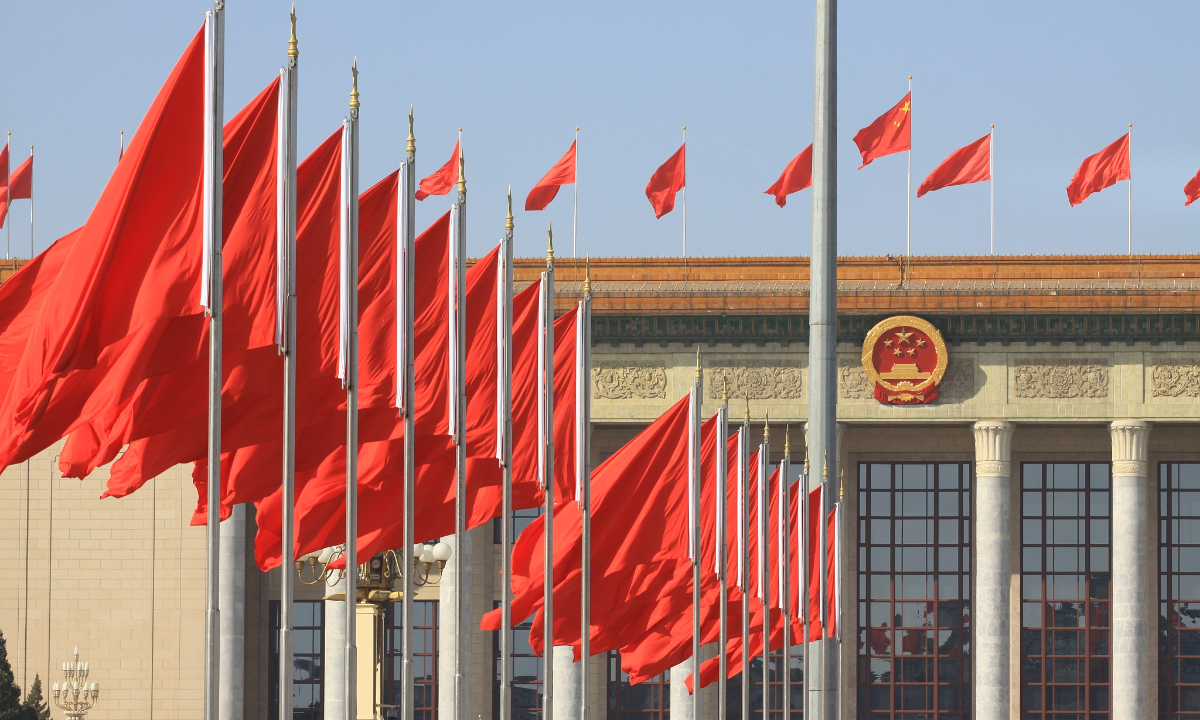The Communist Party of China (CPC) will convene, on July 15 in Beijing, the third plenary session of its 20th central committee, which will primarily examine issues related to further comprehensively deepening reform and advancing Chinese modernization, according to a Thursday meeting of the Political Bureau of the CPC Central Committee chaired by Xi Jinping, general secretary of the CPC Central Committee.
The critical meeting, often referred to as the third plenum in its shortened form, is expected to draw a road map for China’s continuously deepening reforms for years to come. Coming at a time marked by changes unseen in a century and complex international and domestic situations, the plenum will offer a clear path for the country’s pursuit of high-quality development and ultimately Chinese modernization, experts said.
Given the increasingly crucial role China plays on the global stage, the third plenum will also draw attention from around the world. China’s efforts to further comprehensively deepen reform and expand high-level opening-up will create greater opportunities for the world and inject the much-needed impetus into a troubled world economy, experts noted.
Top agenda
According to a meeting of the Political Bureau of the CPC Central Committee, the third plenum will run from July 15 to July 18. The Political Bureau meeting decided to submit a draft decision on further comprehensively deepening reform and advancing Chinese modernization to the plenum for deliberation, according to the Xinhua News Agency.
The draft has thoroughly analyzed the new situations and problems in advancing Chinese modernization and scientifically planned the overall arrangements for further deepening reforms, according to the Political Bureau meeting. Political Bureau members were briefed on comments on the draft, which were solicited from both within and outside the CPC, and the draft will be updated after discussions at the meeting, Xinhua reported.
The third plenum is widely considered one of the most important events in China’s political agenda and is usually focused on various aspects of reform in the country. The third plenary session of the 11th Central Committee in 1978, for example, was an epoch-making event that ushered in the new period of reform, opening-up and socialist modernization that underpinned China’s economic miracle and rapid rise on the global stage over the past several decades.
The third plenary session of the 18th Central Committee held in 2013 was also of epoch-making significance, as it marked the beginning of a new stage in China’s reform and opening-up that underpinned China’s high-quality development over the past several years despite complex international and domestic situations.
In 2023, China’s GDP growth exceeded 126 trillion yuan ($17.3 trillion), up from about 59 trillion yuan in 2013, and a mere 367.9 billion yuan in 1978, the year that marked the start of China’s decades-long reform and opening-up.
“Reform is the driving force for development,” Xi said, while chairing in May a symposium in Ji’nan, capital of East China’s Shandong Province, attended by representatives from business and academia. He said that China should take resolute steps to remove the ideological and institutional barriers hindering the advancement of Chinese modernization, and double down on its efforts to resolve deep-seated institutional challenges and structural issues.
That also sets the tone for the upcoming third plenum, which is not only focused on further comprehensively deepening reform but also the advancement of Chinese modernization, according to experts.
“The recent important meetings taken into considerations, it is clear that the top topics are reform and Chinese modernization,” Liu Ying, a research fellow at the Chongyang Institute for Financial Studies at Renmin University of China, told the Global Times on Thursday, “Further comprehensively deepening reform will pave the way for the realization of Chinese modernization.”
Chinese modernization, which was first written into the report to the 20th CPC National Congress, has become a key term defining China’s journey to its national rejuvenation. The third plenum will not only offer a clear path to achieving Chinese modernization, but will also rally the entire Chinese nation to overcome new challenges and strive to realize such a grand goal, experts said.
“All walks of life have great hopes and expectations for the third plenum, as it will demonstrate how the leadership will tackle new challenges and steer the giant ship of China to forge ahead and break through strong winds and heavy waves. There are also great expectations globally, given the current international situation,” Zhuang Deshui, deputy director of the Research Center for Government Integrity Building at Peking University, told the Global Times on Thursday.
Zhuang said that the third plenum will bring a sense of stability and unite the whole Party and the entire country. Given the current complex situations, the third plenum will offer “a shot in the arm to cheer all walks of life,” so as to continue comprehensively deepening reform, he said.
Experts said that the third plenum will offer the sense of continuity in the CPC’s steadfast efforts and unwavering commitment to carrying out reform, and is of utmost importance to propelling the Chinese nation ahead and achieving its ultimate goal of national rejuvenation.
Underscoring this firm determination, in March, Xi sounded the clarion call for reform, dispelling concerns about whether China’s reform efforts are “stagnating,” or its economy is “losing steam.”
Global significance
Many around the world are also closely following the third plenum for a glimpse into the reform agenda and economic policy in the world’s second-largest economy in the years to come.
“I hope pro-business statements and policies are one outcome,” Gary Hufbauer, a non-resident senior fellow at US think tank Peterson Institute for International Economics, told the Global Times on Thursday, when asked about his expectations for the third plenum. “With a pro-business theme, the prospects will be bright.”
Further comprehensive reform should be led by reform of the economic system, with advancing social equality and justice and improving people’s well-being as both the starting point and the ultimate goal, according to a CPC Political Bureau meeting on April 30, which first decided to hold the third plenum in July.
Reform of the economic system should start from meeting realistic needs and tackling the most urgent matters, and should advance theoretical and institutional innovation in the process of solving practical problems, Xi said during the symposium in May.
Economic reform will focus on addressing institutional and other issues so as to cultivate the new quality productive forces, which has also become a top priority for China’s economic policymaking, and promote high-quality development, according to Liu.
“Ultimately, reform in itself will release massive development dividends,” Liu said, noting that China’s continued high-quality development and its open and inclusive approach will inject the much-needed vitality into the world economy. “Moreover, China’s reform road map will also offer the world, especially developing countries, a model for achieving their own modernization.”













